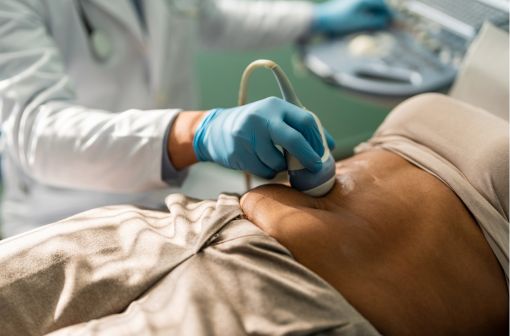“It’s about having an individualised health-management plan for reducing risk and improving health.”—Dr Fiona Jane, Specialist Women’s Health GP, Jean Hailes for Women’s Health
Key points
- Our bodies continue to change in our 50s, with menopause having a significant impact on the health of many women. While the symptoms of menopause can sometimes be quite severe, they are also treatable. It’s also important to be prepared for menopause’s possible long-term effects.
- Make time for key age-related tests in your 50s, such as screenings for osteoporosis, heart disease, and bowel and breast cancer.
- There’s a lot to deal with in your 50s. If you’re struggling, it’s important to ask for help when you need it.
If you’ve won the genetic lottery, congratulations! Your health in your 50s will be a smooth ride. But for the rest of us the 50s can be a decade of huge changes in our health, and for women the 50s can be a rollercoaster due to the hormonal changes brought on by menopause.
In this our article, our experts look at what you could be doing to stay on top of your health and Real Wellbeing in this mid-life decade.

Learn all you can about “The Change”
The average Australian woman goes through menopause around the age of 51 or 52, according to Dr Fiona Jane, Specialist Women’s Health GP at Jean Hailes for Women’s Health. Unfortunately, for about a third of us, it’s no picnic.
“Common symptoms include hot flushes, night sweats, disturbed sleep, joint aches and pain, and mood changes,” says Fiona. “And up to 20 percent of women have such severe symptoms that they describe poor general wellbeing, poor work performance, and depression.”
This can have significant implications for women, some of whom are “out there trying to achieve on the job front, running home and families or caring for others,” she adds, “but all of these symptoms can be treated”. So talk to your GP if you’re finding it hard to cope.
And while we may understand the immediate symptoms, it seems many of us are unaware of, and underprepared for, the longer-term effects of “The Change”.
“An Australian study, published in July 2020 by Professor Susan Davis, found that mid-life women had a reasonable understanding of the common symptoms of menopause,” says Fiona. “But there was a real and concerning lack of knowledge about the possible long-term effects on bone health, on the heart and cardiovascular symptoms, and on your risk of developing metabolic disease such as diabetes. Women just didn’t know about it.”
Dr Fiona believes education is the key. “Yes, you are experiencing all of these symptoms now, but there are longer-term health issues that we need to prepare for to keep you as healthy as you possibly can be.”
Jean Hailes for Women's Health and The Australasian Menopause Society are both excellent resources to check out.
Get screened regularly
From your 40s onwards, there are a few simple steps that can make a significant difference to your long-term health. Our experts suggest:
- Developing a relationship with a GP you trust and feel comfortable discussing sensitive issues with.
- Scheduling a yearly check-up with your GP, even if you feel healthy and well.
- Ask lots of questions, and make sure you get your information from reliable, evidence-based sources (such as government websites).
However, when you hit your 50s, it’s also worth making time for a few extra screening tests.
“The specific tests that you want to be discussing would be risk assessments for osteoporosis, heart disease and your blood pressure, and then mammograms and bowel cancer screenings,” says Alexandra Warhurst, an Accredited Practising Dietitian and Health Coach for HealthierMe™, a program run by Australian Unity’s partner Remedy Healthcare.
That’s on top of the usual “cervical screening, blood-glucose and skin cancer checks, dental check-ups, and staying up to date with any recommended boosters and vaccinations”.
The precise type of screening you’ll need and when will vary depending on a range of genetic and lifestyle factors. “It’s about having an individualised health-management plan for reducing risk and improving health,” says Fiona.
.png)
Encourage better bone health
For women who have gone through menopause, a rapid loss of bone density occurs due to changes in hormones, “so your calcium requirements at that stage are really high. You’re ideally aiming for 1300 milligrams of calcium a day, and we always recommend trying to get it through your diet first,” advises Alexandra.
That’s “roughly four servings of dairy” every day, she explains, but there are also alternative sources, including including tofu, calcium-fortified soy or almond milk, and fish containing bones. “If you're really struggling, you might look at a supplement just to make up the difference,” adds Alexandra.
There are also couple of other things she recommends to reduce the risk of osteoporosis, for both men and women. The first is “getting your vitamin D tested”, and the second is “resistance training, because that is what's going to encourage your bones to stay strong.”
Ask for help
In their 50s, women in particular tend to carry a lot on their shoulders, so don’t be afraid to speak up about your experiences and needs. Talk to friends, family and trusted professionals to find out what support is available.
“Women are so good at managing so much and just soldiering on—their endurance levels are amazing,” says Fiona. “But if you’re finding you’re challenged in any way and you can’t find your way around it, ask for help. There are always ways around the challenges.”
Disclaimer:
Information provided in this article is not medical advice and you should consult with your healthcare practitioner. Australian Unity accepts no responsibility for the accuracy of any of the opinions, advice, representations or information contained in this publication. Readers should rely on their own advice and enquiries in making decisions affecting their own health, wellbeing or interest.


